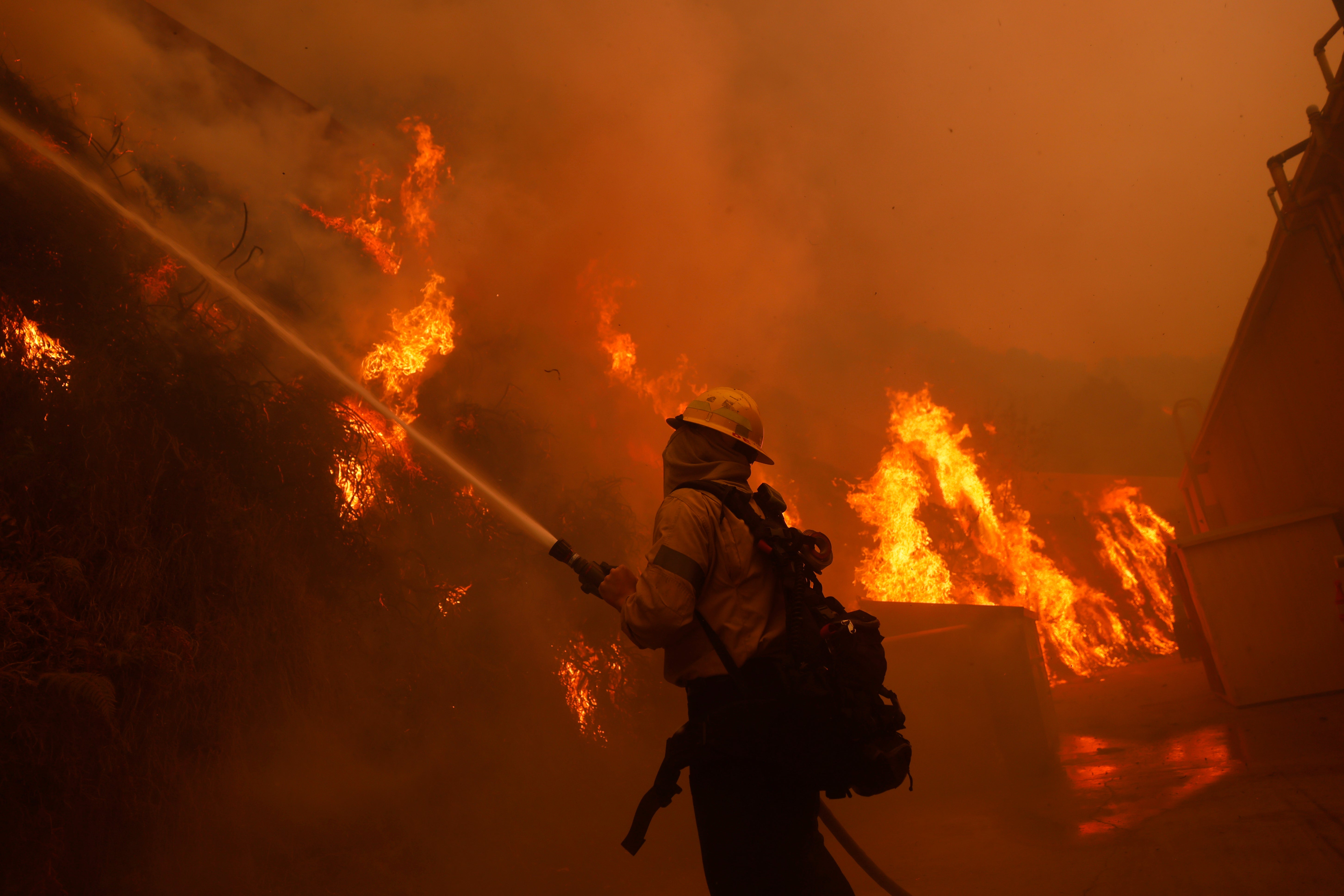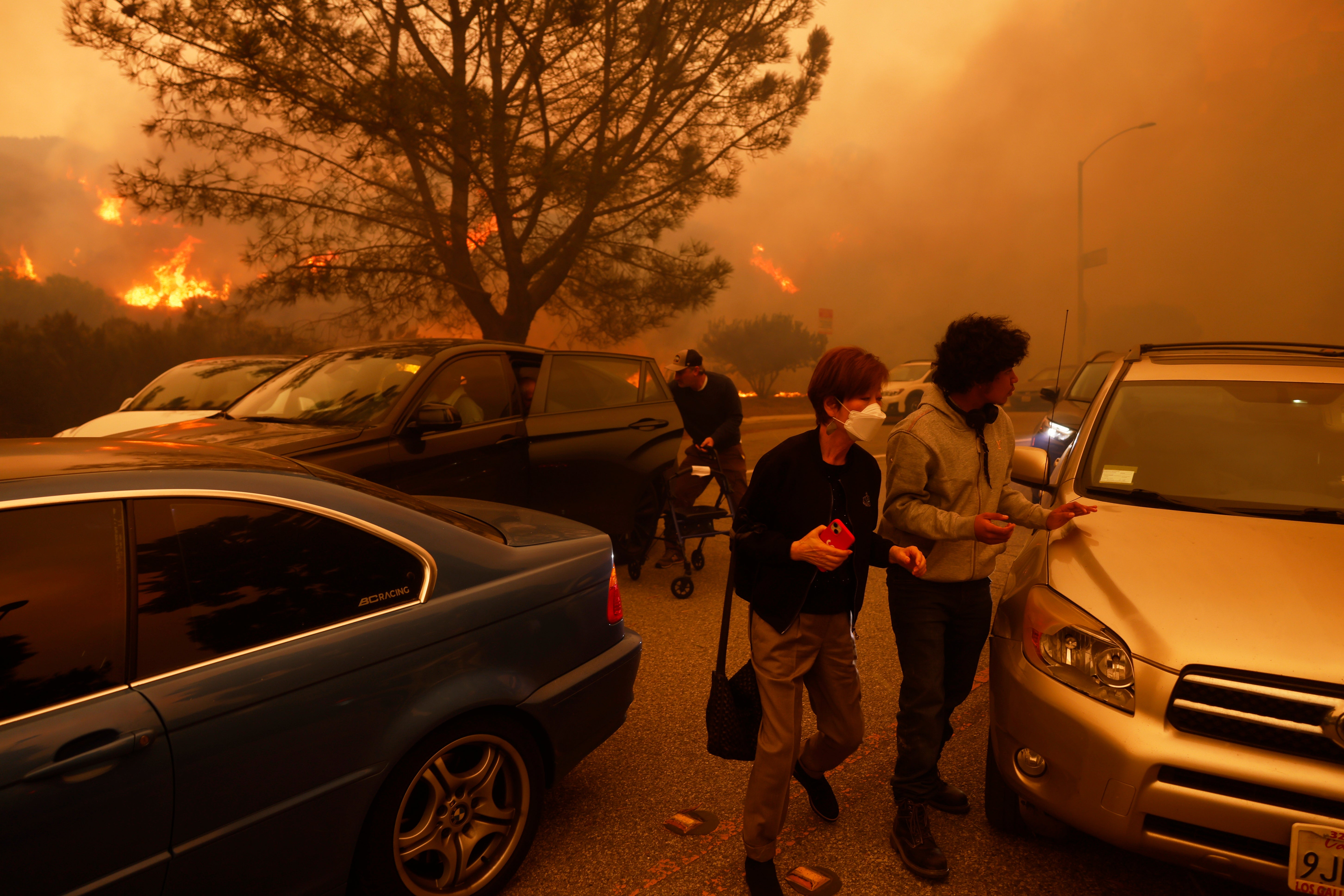What was the cause of the Pacific Palisades fire?
New Year’s Eve fireworks could be to blame, although authorities have not yet definitively ruled out arson
Your support helps us to tell the story
From reproductive rights to climate change to Big Tech, The Independent is on the ground when the story is developing. Whether it's investigating the financials of Elon Musk's pro-Trump PAC or producing our latest documentary, 'The A Word', which shines a light on the American women fighting for reproductive rights, we know how important it is to parse out the facts from the messaging.
At such a critical moment in US history, we need reporters on the ground. Your donation allows us to keep sending journalists to speak to both sides of the story.
The Independent is trusted by Americans across the entire political spectrum. And unlike many other quality news outlets, we choose not to lock Americans out of our reporting and analysis with paywalls. We believe quality journalism should be available to everyone, paid for by those who can afford it.
Your support makes all the difference.As Los Angeles firefighters continue to battle the January wildfires that have laid siege to southern California for almost a week, attention is beginning to turn to what exactly ignited the blazes.
The fires have so far killed at least 24 people, destroyed some 12,000 homes, scorched 40,000 acres of ground and forced the mass evacuation of residents, as emergency responders, including the National Guard, fight to bring the flames under control and restore order.
The first and biggest of the infernos to erupt commenced on Tuesday January 7 and became known as the Palisades Fire after it tore through the affluent neighborhood of Pacific Palisades, home to many Hollywood celebrities and famous faces.
While the causes of the Palisades Fire has not yet been officially established and the authorities have not yet ruled out the possibility of arson, an extensive investigation by The Washington Post has suggested it may have commenced when an earlier blaze caused by New Year’s Eve fireworks was rekindled.
The newspaper’s findings indicate the area’s strong Santa Ana winds may have served to reignite that fire after it lay smouldering undetected underground or within wood in the week after it was first put out, whipping it up into the much larger disaster that ensued.
The Post said its analysis “showed that the new fire started in the vicinity of the old fire, raising the possibility that the New Year’s Eve fire was reignited, which can occur in windy conditions, experts said”.
It explained that it had reached its conclusion after reviewing photographs, videos and false-color satellite imagery to trace the burn scar left by the New Year’s blaze along the Temescal Ridge in the Santa Monica Mountains, as well as eye-witness interviews with residents and archived radio transmissions between emergency responders.

“The foot of the fire started real close to where the last fire was on New Year’s Eve,” a Los Angeles County firefighter can be heard observing in one such transmission quoted by the newspaper, dating from last Tuesday.
“It looks like it’s going to make a good run,” a colleague answers in the dispatch.
Agents from the federal Bureau of Alcohol, Tobacco, Firearms and Explosives are understood to be leading the official investigation into what happened and have declined to comment on an ongoing inquiry that they said could take “weeks or months” to wrap up with a definitive answer in place.
A Los Angeles Fire Department spokesperson explained that it is not its practice to continue to patrol fire sites that have been extinguished and turned cold, although pointed out that it does make a practice of warning against the dangers of reignition on social media, pointing to a publicity campaign it put out last summer.
One unnamed local resident told the Post they were confident the New Year’s Eve blaze was behind the Palisades Fire, saying the former was “started by idiots” heading into the hills to party and set off fireworks to ring in 2025.

“You got to know better,” he commented.
“It’s dry. There’s no precipitation. I don’t know if you’ve ever been camping, but when you go camping and put a fire out, that doesn’t mean that it’s not hot below.
“Then the Santa Anas came on Monday, and that’s what started, that’s what reignited the fire.”
The importance of determining precisely how the Palisades Fire burst into life comes as local residents and businesses consider taking legal action in pursuit of damages.
The Wells Fargo bank has estimated that the final cost of the disaster could lie anywhere between $60bn and $130bn.

Join our commenting forum
Join thought-provoking conversations, follow other Independent readers and see their replies
Comments